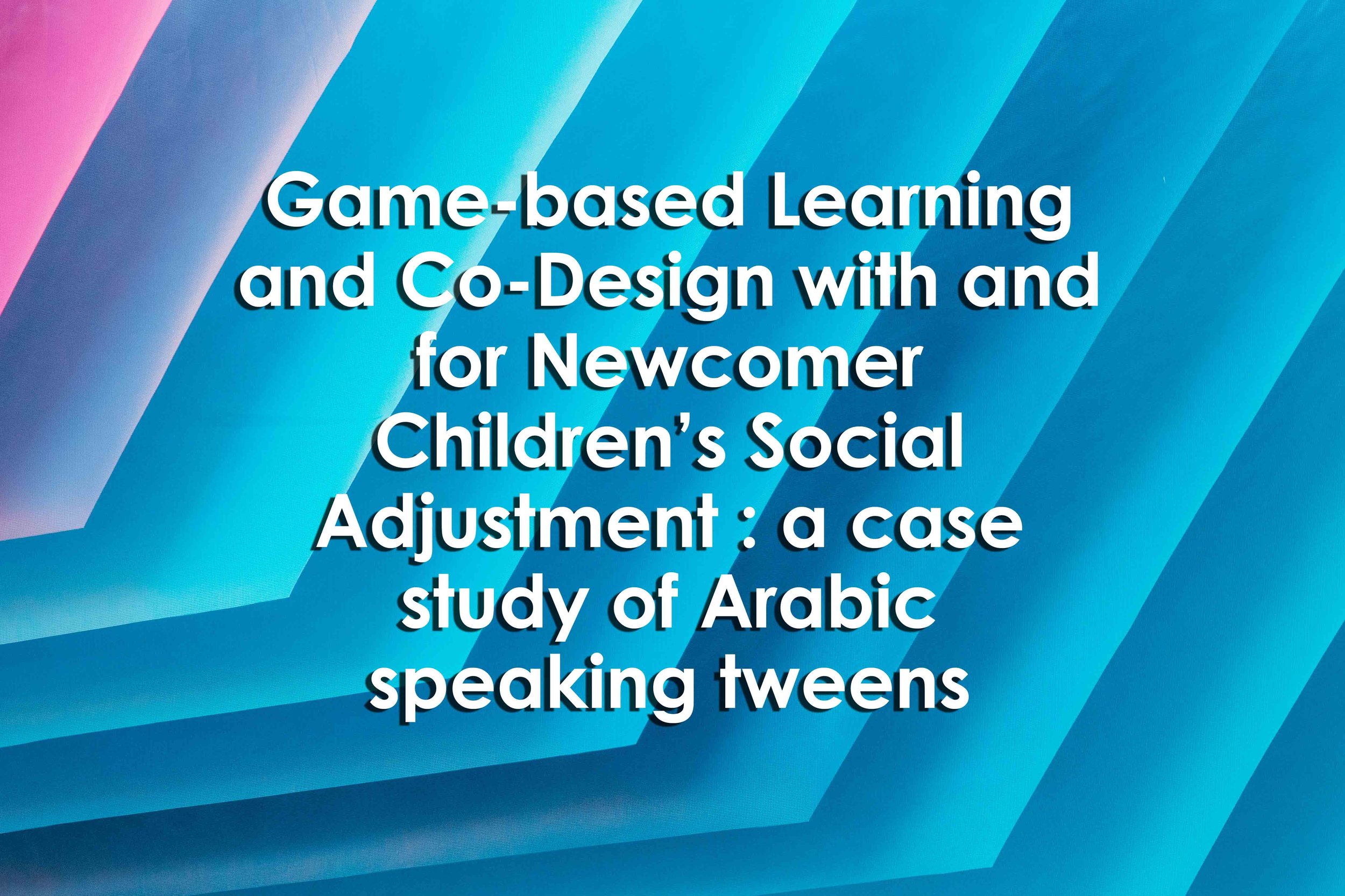Game-based Learning and Co-Design with and for Newcomer Children’s Social Adjustment : a case study of Arabic speaking tweens
Game-based Learning and Co-Design with and for Newcomer Children’s Social Adjustment : a case study
Game-based Learning and Co-Design with and for Newcomer Children’s Social Adjustment : a case study of Arabic speaking tweens
By Omar Ibrahim Mahmoud Bani-Taha
Abstract
“The research reported here addresses the use of Game-Based Learning (GBL) and co-design methods inthe social adjustment of newcomer children (the children of recent migrant families). Educational gameshave been shown to be an effective way of learning for adults and children. While the subject ofnewcomerchildren has been studied broadly, there are still many openresearch questions, including the role ofemerging technologies (such as GBL) in the context of newcomer children’s social adjustment. Also, theliterature lacks a well-established digital technology framework in the context of newcomer children'ssocial adjustment. Furthermore, there is almost no research investigating the role children can play indesigning digital solutions to their pressing social problems. To bridge these gaps, we propose a socialadjustment framework customized for newcomer children. It offers a comprehensive and interdisciplinarytheoretical foundation, design guidelines, and a procedural model that consists of three elements (gamebased learning, cultural inclusion, and co-design). Our research approach focuses on social adjustment problems faced by newcomer children to Canada aged 9–12 who are from Arabic-speaking countries,evaluating a solution using game-based learning, and engaging the children in co-designing such asolution.Our research has three main contributions: 1) it is the first study of to apply or use of game-basedlearning in the context of newcomer children’s social adjustment; 2) itintroduces and implements a codesign approach to work with and fornewcomer children; 3) it provides a customized educational game based learning social adjustment framework including guidelines for cultural inclusion to help newcomerchildren in their social adjustment journey. Our first study identified the most pressing social adjustmentproblems through a fundamental survey study with newcomer children aged 9–12, their parents, andteachers. Our second study showed the effectiveness of game-based learning through a proof-of-conceptgame we created called the New Beginning. Finally, our third study revealed that newcomer childrencould contribute effectively as co-designers for creating social adjustment computer games for newcomer children. Also, we present educational game design guidelines, and otherguidelines to work with and fornewcomer children. Considering what we learned throughout this research journey, we conclude with areflection on re-designing the proof-of-concept game New Beginning, and design a new game called Together-WeCan”
Reference
Bani-Taha, O. (2022). Game-based learning and co-design with and for Newcomer Children’s Social Adjustment. CURVE Carleton University Research Virtual Environment. doi:10.22215/etd/2022-15078 https://curve.carleton.ca/59dd4fc2-ff3d-4330-9679-0d23f70ded0f
Keyword
Game-based learning, educational games, children, social, game design, research

